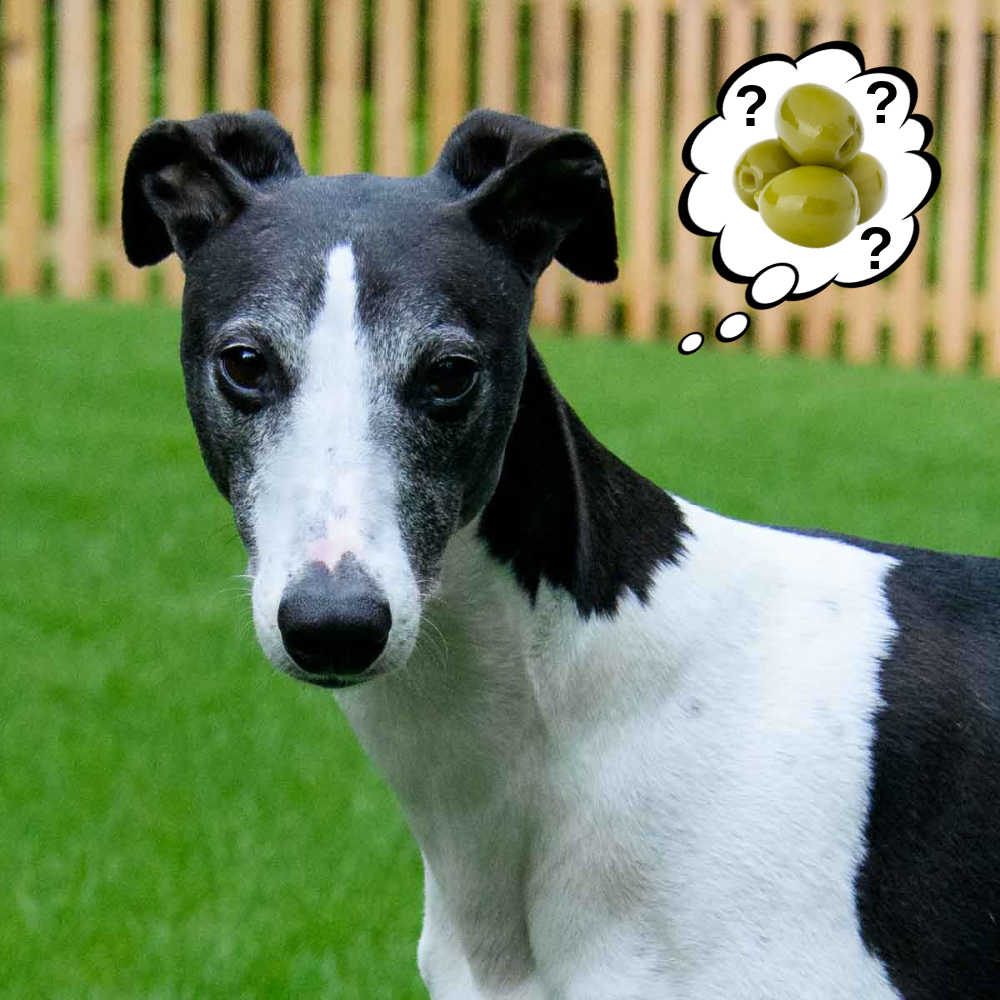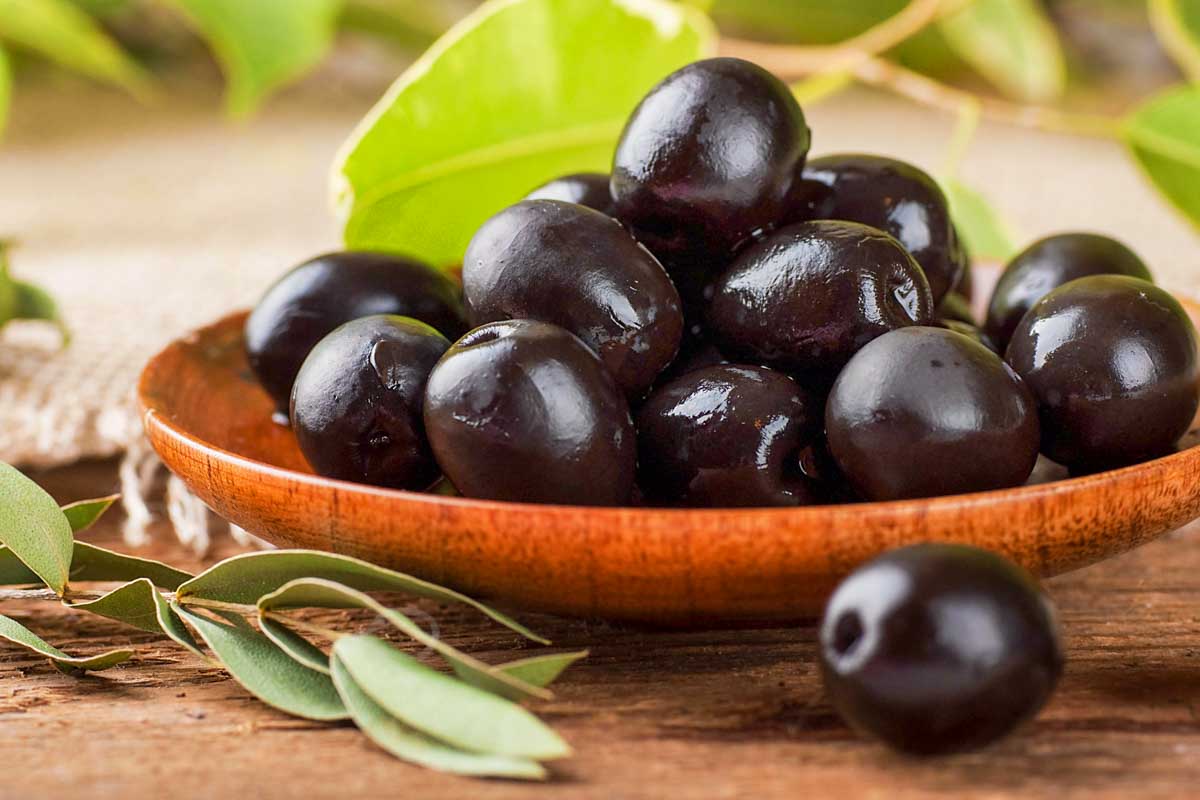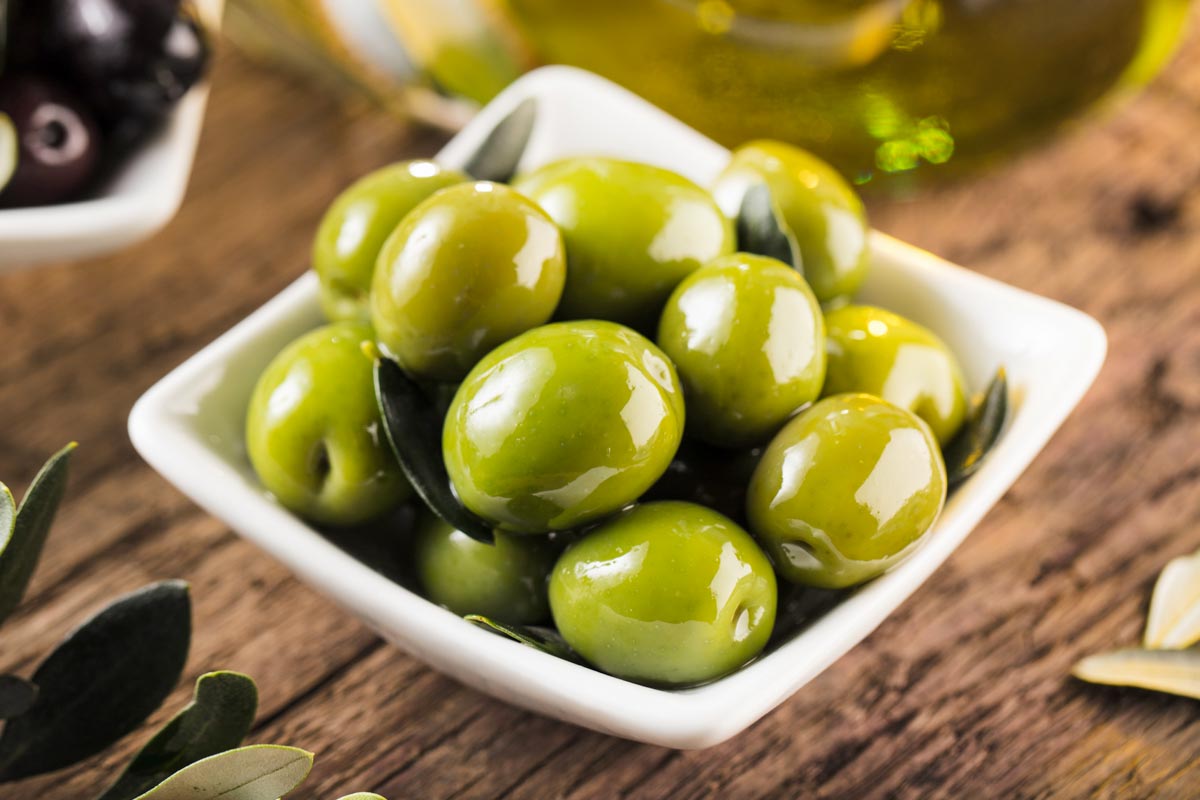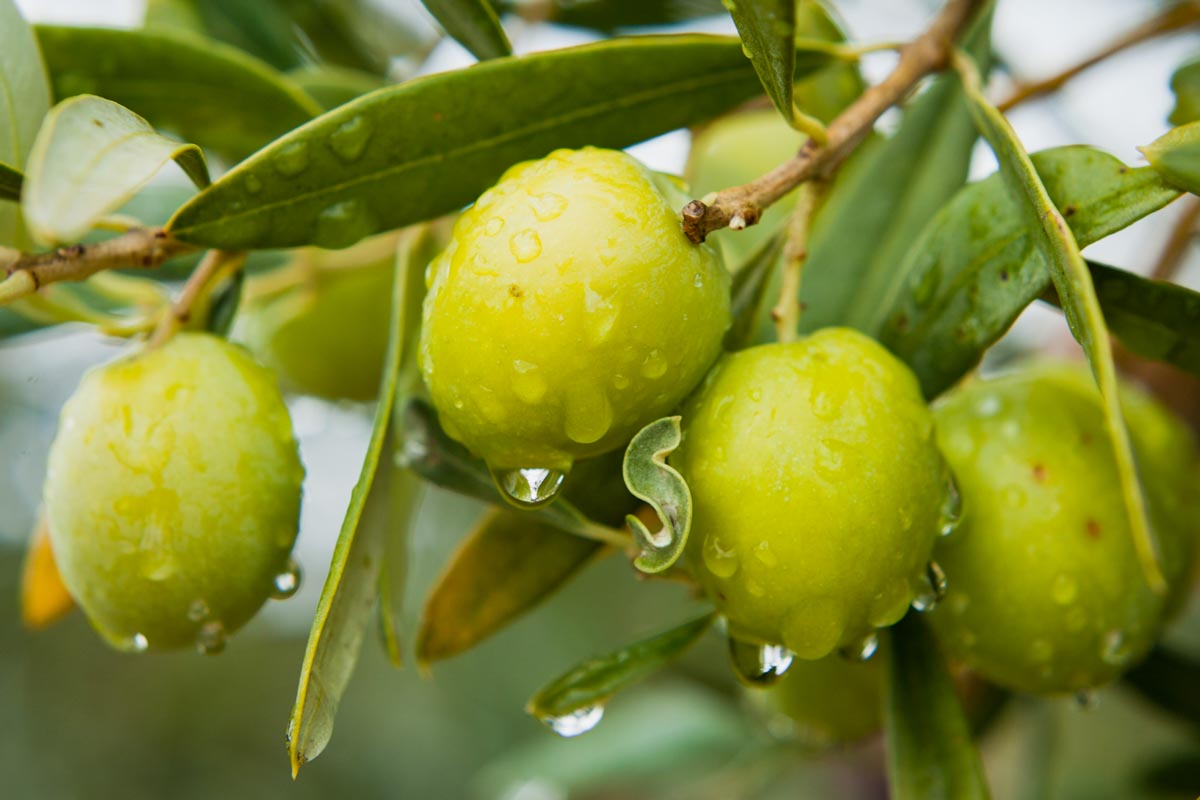They might seem harmless, but can dogs eat olives? This guide will answer all your questions about the different types of olives and dogs.
As pet owners, we want the very best for our furry friend. Some human foods – like olives, seem juicy and even healthy. Be careful and read this guide.
Not only are there a bunch of different types of olives, but you’ll find there are tons of foods made with olives too. This guide will look at as many different recipes, types of food, and varieties of olives and answer that very important question: can dogs have olives?

For ultimate pet safety, I recommend consulting with your vet about all the questions you have about your dog eating olives.
- Can Dogs Eat Olives
- Are Olives Poisonous To Dogs
- Are Olives Safe For Dogs
- Are Olives Good For Dogs
- Are Olives Bad For Dogs
- Are Olives Ok For Dogs
- Are Dogs Allergic To Olives
- Dogs And Olives: Different Types
- Can Dogs Eat Black Olives
- Can Dogs Eat Green Olives
- Can Dogs Eat Greek Olives
- Can Dogs Eat Kalamata Olives
- Can Dogs Eat Manzanilla Olives
- Can Dogs Eat Whole Olives
- Can Dogs Eat Olives From The Tree
- Can Dogs Eat Raw Olives
- Can Dogs Eat Ripe Olives
- Can Dogs Eat Canned Olives
- Can Dogs Eat Cooked Olives
- Can Dogs Drink Olive Juice
- Can Dogs Eat Dry Olives
- Can Dogs Eat Fried Olives
- Can Dogs Eat Olives In Brine
- Can Dogs Eat Pickled Olives
- Can Dogs Eat Pimento Olives
- Can Dogs Eat Olive Pits
- Can Dogs Eat Olive Branches
- Can Dogs Eat Olive Leaves
- Foods With Olives And Dogs
- Olive Plants and Dogs
- Final Thoughts
- More Dog Food Resources
Can Dogs Eat Olives
The good news is that olives are not toxic to dogs. Your pup should still only enjoy this fruit in moderation. Olives still come with some minor risks to canines.
There are a bunch of different types of olives and a large number of different kinds of foods made with olives. Keep reading and move around in this guide to find the answers to your questions about dogs and olives.

Are Olives Poisonous To Dogs
No, olives are not toxic to dogs. They also don’t contain any poison, either. There are lots of reasons that you should control how many olives your dog eats.
Are Olives Safe For Dogs
Pitted, plain olives are the safest ones you can give your pup. As long as they aren’t coated in salt, don’t contain pits, and are just completely plain, they are safe to share with your dog in small amounts.
The biggest thing to watch out for is high levels of sodium. If you have unsalted olives, then a little bit of them might even benefit your pet, thanks to the good fats they have in them.
Are Olives Good For Dogs
Olives do contain lots of valuable nutrients and vitamins. They are rich in vitamin E and have lots of healthy fatty acids too. There are lots of health benefits of olives, including monounsaturated fats that could support healthy skin.
If your pet is eating a balanced diet, they don’t need to eat olives to get these nutrients.
Still, they can be a healthy treat once in a while. They are a fantastic source of healthy fats and protein. This means they are good for your dog’s skin, coat, and muscles.
Are Olives Bad For Dogs
Plain olives are not bad for dogs. The unhealthy parts of olives are what people soak them in or add to them.
Dogs should never eat olives that have pits. The pits pose a choking hazard for dogs.
You should also never give your dog anything that has garlic, onion, or salt on it. Dogs are very sensitive to salt.
If you add olives to your martini, don’t share them with your dog. Your pet doesn’t need any alcohol.
Are Olives Ok For Dogs
Generally, olives fall in the “ok” spectrum of safe treats. A few plain pitted olives are totally safe to share with your dog.
If you don’t know how your dog will react to olives, give them small quantities and see how their stomachs react to it. Watch for symptoms of allergic reactions and always refrain from letting your dog eat too much sodium.
Are Dogs Allergic To Olives
It’s very rare, but some dogs might be allergic to either olives or olive oil. If you don’t know if your dog has an allergy to either, contact your veterinarian and ask how to safely introduce it to your pet.
As a dog owner, anytime you introduce new foods to your dog, you should watch for signs of allergic reactions. These include coughing, sneezing, or itching.

Dogs And Olives: Different Types
So, the answer to “can my dog eat olives” is pretty much “yes, but only in moderation and only plain ones.”
When you go shopping, you’ll probably notice a bunch of different types of olives out there. Let’s look even closer at each type and how safe they are for pups.
Can Dogs Eat Black Olives
Black olives are one of the most popular types that are sold, so it’s no wonder that people ask, “can dogs eat black olives?”
Yes, your dog can eat pitted black olives as long as they are not salted and are served to your pup plain.
Black olives are not poisonous or toxic to dogs. They will only hurt your dog if your pup has an allergy or you give your dog an olive with the pits in them.

Can Dogs Eat Green Olives
What about green olives? Can dogs have green olives? Yes, they certainly can. Green olives are safe for your dog to eat as long as they don’t have pits aren’t soaked in salt or have any other unsafe spices on them.

Can Dogs Eat Greek Olives
There are a bunch of different varieties of Greek olives out there. All of them are ok for dogs to eat, as long as they don’t have pits and aren’t soaked in salt, garlic, onion, or sugar.
Can Dogs Eat Kalamata Olives
Kalamata olives are dark brown have a meaty texture. They are safe to share with your dog as long as you give it to them without the pits and unsalted.

Can Dogs Eat Manzanilla Olives
Manzanilla olives hail from Spain – they are also called Spanish olives. These green olives are safe for dogs to eat if they don’t have pits and are given to your dog plain.
Can Dogs Eat Stuffed Manzanilla Olives
No, dogs should not eat stuffed olives. They are usually in a jar and packed with a combination of salt and water. Dogs should never eat anything that has added salt because it could lead to salt poisoning.
Can Dogs Eat Whole Olives
This answer is tricky. Dogs can only eat whole olives as long as they don’t have pits and don’t have any added salt or spices on them.
It’s a good idea to keep your canine friends away from whole olives, just in case. Even though a small piece might not hurt them.
Can Dogs Eat Olives From The Tree
No, dogs should not eat olives from the tree. The pits are very dangerous for dogs. Dogs might choke on them, or they might get lodged in their digestive system. They might also chip their teeth on the tough pits.
It’s best to keep your dog away from fresh olives that fall from the trees.

Can Dogs Eat Raw Olives
It is safe to give your dog a few raw olives if you already removed the pits from them. Raw olives are the safest way to share them with your dog.
Can Dogs Eat Ripe Olives
Yes, dogs can eat ripe olives if they are pitted. Just make sure they aren’t overripe. If they are too mushy, they might give your dog an upset stomach.
Can Dogs Eat Canned Olives
No, do not let your dog eat canned olives. They are preserved in salt and water. Dogs are very sensitive to salt and too much can cause vomiting, diarrhea, or even seizures.
Can Dogs Eat Cooked Olives
This depends on how they are cooked. If you cooked them plain without any spices, your dog can eat a few of them.
Dogs should never eat anything cooked with salt, garlic, or onion.
Can Dogs Drink Olive Juice
It’s always best to just avoid giving your dog any type of juice – this includes olive juice. Juice usually has a high amount of calories and dogs don’t need to eat too many calories.
While typical olive juice isn’t sweet or high in calories, it is loaded with sodium which is not good for dogs. It is better for their health if they only drink water.
Can Dogs Eat Dry Olives
Yes, dogs can eat dry olives, as long as they are completely plain. Do not let your dog eat dry salted olives.
Can Dogs Eat Fried Olives
No, dogs should not eat fried olives. Dogs should not eat fried foods of any kind. The excess oil is unhealthy for your dog’s heart and weight.
Can Dogs Eat Olives In Brine
Brine is extremely high in sodium, so you should not give your dog olives that are soaked in it. Keep them away from your pet.
Can Dogs Eat Pickled Olives
No, do not give your pet pickled olives. Even though one might not hurt them immediately, they have way too much salt to be safe to share with your dog.
Can Dogs Eat Pimento Olives
Even though pimento itself is a safe ingredient, most pimento olives are extremely salty. Do not let your dog eat pimento olives that are packed in saltwater.
Can Dogs Eat Olive Pits
Absolutely not! Dogs should never eat olive pits. These are very dangerous for dogs. Not only are they a choking hazard, but dogs might chip their teeth on the pits. Keep the pits away from your dog.
Can Dogs Eat Olive Branches
Dogs should not eat wood branches. They cause a choking hazard. Chewing on them could damage your dog’s teeth and the splinters could harm your pet’s stomach.
If your dog likes to chew on branches, give them a safe chew toy instead.
Can Dogs Eat Olive Leaves
Leaves are high in fiber and eating them could give your dog diarrhea. They are not toxic to dogs, but it’s best to keep them away from your pet.
Foods With Olives And Dogs
Now let’s look at some popular types of food that are made with olives and how safe they are for dogs to eat.
Can Dogs Eat Olive Bread
Even though bread is basically safe for dogs, it contains too many carbs to be good for their weight. Dogs that eat lots of bread could gain too much weight and be at risk for diabetes, heart disease, and other health issues.
Plain olive bread is safe for dogs in small amounts, but it should not be a regular treat.

Can Dogs Eat Olive Butter
This is a tough question to answer because there are a bunch of different types of olive butter out there – including recipes to make your own.
The safest option of all is to just keep it away from your dog entirely. Lots of olive butter is made with unhealthy amounts of fat or added salt. Dogs do not need this in their diet.
Can Dogs Eat Olive Loaf
An olive loaf is a type of deli meat that has olives stuffed with pimentos in it. This meat is usually really high in salt. Since it has so much salt, you should not share it with your dog.
Can Dogs Eat Olive Spread
There are a bunch of different types of olive spread out there. You’ll have to look at the ingredients to determine if it is safe for your dog.
Do not let your dog eat anything that has dairy in it (especially if they are lactose intolerant), garlic, onion, or salt.
Can Dogs Eat Olive Tapenade
A small amount of olive tapenade might not hurt your dog, but it’s not a healthy choice either. It’s made with anchovy paste, which has sugar and other spices in it. If that anchovy paste has salt or garlic in it, you should definitely keep it away from your dog.
Can Dog Have Olive Oil
Yes, your dog can have olive oil – as long as it is plain. Do not allow your do to eat anything with garlic or onion-infused olive oil.
You should also consult your veterinarian if you think your dog might have an allergy to olive oil, as some dogs do.

Can Dogs Have Olive Leaf Extract
Yes, dogs can have a safe dose of olive leaf extract. In fact, according to VCA Hospitals, it is used as an all-natural antimicrobial to treat different types of infections.
Always ask your veterinarian before you try any at-home treatments for your dog’s ailments.
Olive Plants and Dogs
In addition to those black and green olives, there are a few other types of olive plants I wanted to talk about.
Can Dogs Eat Autumn Olives
This is a tree or shrub. It has red berries that are also known as silverberry. According to the ASPCA it is non-toxic to dogs.
It has too much fiber in it to be an enjoyable treat for dogs. It’s best to keep them away from this plant.
Can Dogs Eat Russian Olives
Russian olives are a tree that looks like an olive tree but it has yellow-brown berries that have silver scales.
These berries are non-toxic to dogs but you should still keep them away from your dog. It could upset their stomach.
Can Dogs Eat Mexican Olives
Do not let your dog eat these berries. The Mexican olive bush is an ornamental shrub with white flowers. It is not edible or meant to be consumed.
Final Thoughts
It’s safe to share pitted, plain olives with your dog as a rare treat. Always keep salted or spiced olives away from your dog due to the high sodium content. The pits pose the biggest health risk, so make sure the olives are always pitted before you share them.
If you have any questions about how your dog will react to olives, please ask your veterinarian.
More Dog Food Resources
Here are some more articles about other types of fruits and vegetables. Find out whether they are safe or dangerous for your dog to eat.
- Can Dogs Eat Beans
- Can Dogs Eat Beets
- Can Dogs Eat Eggplant
- Can Dogs Eat Fennel
- Can Dogs Eat Parsnips
- Can Dogs Eat Pizza
- Can Dogs Eat Plantains
Find lots more articles about food dogs can eat here on Spoiled Hounds!
📌 Pin this to save and share 📌



Thanks for this great information. As a dog owner, this information is helpful for me. I have a 2 year old golden retriever. Can I feed him olives regularly?
Olives should be given to dogs in moderation and not as an everyday treat. A couple of olives once or twice a week is a good frequency.